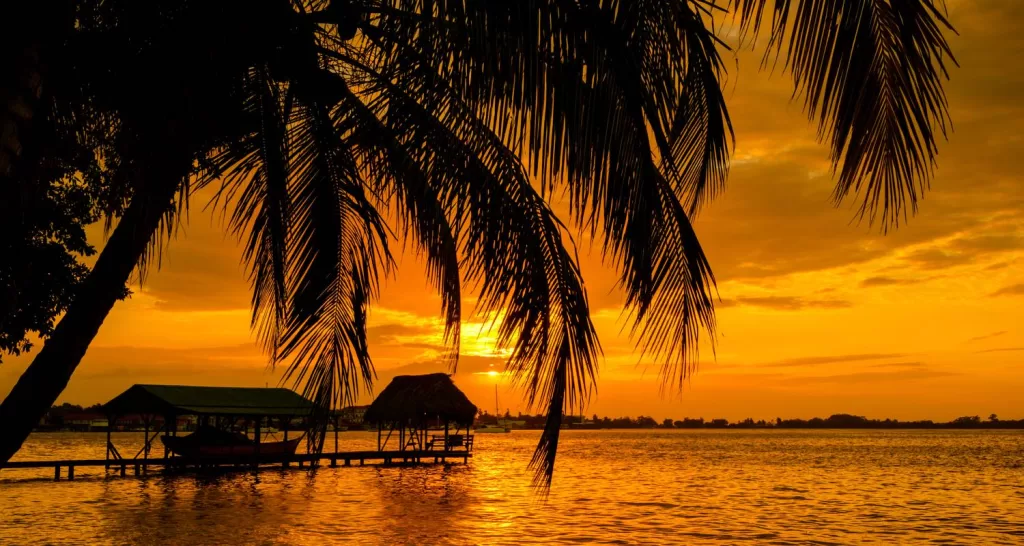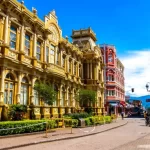Why Costa Rica is the Best Place to Retire in 2024?
That pura vida vibe makes Costa Rica the perfect home away from home. Maybe it’s the pristine tropical beaches, the eternal spring-like weather in the Central Valley, the fact it (Nicoya to be exact) is home to one of the world’s Blue Zones, the volcanic energy coursing through its ground, the rich biodiversity of its flora and fauna, the stunning turquoise waterfalls, or that Costa Rica has been ranked as one of the happiest countries.
This Central American gem is not only a hotspot for retirees these days but also for single digital nomads and even families looking to escape the rat race. For many, it’s a dream to relocate to this tropical haven, where everyday life coexists with nature. You may see sloths climbing up trees with their babies in tow or howler monkeys swinging from branch to branch in your backyard. It’s no surprise why Costa Rica tops IL’s Annual Global Retirement Index in 2024; it boosts an affordable cost of living, top-quality healthcare options, and natural beauty.

Bekah Bottone, IL’s Costa Rica Correspondent, shares how Costa Rica captured her heart, “Ticos are such caring and helpful people. Although you don’t need to speak Spanish to adjust to life in many areas of Costa Rica, such as the coast in Guanacaste, speaking the language allows you to integrate with the local culture and people, which was how I first fell in love with this Central American country in 1997.”
People appreciate the stability Costa Rica offers in an increasingly divided world. Lauded as the Switzerland of Central America, Costa Rica abolished its army in 1948, shifting funding toward healthcare and education. It’s internationally recognized for its environmental commitment; a quarter of its land is protected as national parks and wildlife refuges. Additionally, it has recently been operating 98% on renewable energy.
There are two healthcare systems within Costa Rica, public and private. The public one, La Caja, is available to legal residents without copays, pre-existing exclusions, or age disqualifications. However, once you are a resident (choose from the following options: pensionado, rentista, or inversionista), you must pay 13% -15% of your reported monthly income into this Caja Costarricense de Seguro Social healthcare system.
“Blending both systems gives you the best of both worlds,” shares Bekah Bottone. “For example, just last week, my private general practitioner gave prescriptions to my kids and me to get blood tests done in the public system. Then, I paid for an office visit, $44, to review the results together.” Many residents also purchase private insurance policies through familiar insurance companies from English-speaking agents in Costa Rica. These policies are priced significantly less compared to U.S. prices.
“Retirees who need special medical care should understand that access to the appropriate healthcare facilities will be their greatest limiting factor when choosing where they settle in Costa Rica,” says Matt Rosensteele, who has lived and worked in Costa Rica since 2008. “Determine your healthcare needs and base your search on the areas where you have easy access to what you need.”
The best medical facilities are in the capital. San Jose is home to three JCI-accredited private hospitals — the highest international accreditation for medical centers. And there are numerous private clinics throughout the country. In addition, the public system has over 29 hospitals and nearly 250 regional clinics, making it easy to find healthcare throughout the country.
The high quality of healthcare in Costa Rica is one reason people are flocking here. “Many doctors and surgeons in San Jose have been trained in the U.S., and it is a fraction of the cost of what you pay back home,” shares Jennifer Dixon, originally from Canada. “I have been impressed with how available doctors are to answer questions… it’s very different than in the U.S. and Canada.” Most doctors share their cell phone numbers with their patients and reply to messages after office hours.
Many agree that the climate in Costa Rica makes life better. The fascinating micro and macro climates that govern the country allow such diversity to thrive in a country the size of West Virginia. Elisa Maria Florez moved to Costa Rica from California in 2015 and has never regretted her decision. “My whole message is that Costa Rica is not a destination but a lifestyle. You can have a microclimate in your front yard and a different one in your backyard.” With its vast number of plant and tree species, birds, and wildlife, Costa Rica is paradise!
Find the climate that best suits your needs. You may choose one of the contrasting conditions located around Lake Arenal. On the one side of the lake, in Tronadora, there is about 50% less rain than is experienced across the lake in the lively expat town of Nuevo Arenal. Beach life is often hot and humid, yet the Northern Pacific beaches in Guanacaste are also the driest areas in the country. Life in the mountains and the Central Valley is noticeably cooler than on the coasts, and people often enjoy the sunny days and cooler nights.
Costa Rica is characterized by dry and wet seasons. The dry season, verano, or summer, spans from early December to April. The other season is invierno, winter, which lasts from May to November. Even in winter, Costa Rica boasts warm temperatures, so outdoor living is year-round. Connecting with nature and breathing in the fresh air is revitalizing and makes it easy to meet friends on the beach, in the mountains, or at the park.
Terry Young, who has lived in San Francisco de Dos Rios (in the Central Valley) since retiring, is grateful for how life in Costa Rica has positively impacted his life. “The greatest change I have seen is my health. I have gotten off the eight prescriptions I took in the U.S. and have never felt healthier in recent memory. Fresher diet? Lack of stress? The exercise I get walking everywhere? Nature? I don’t know exactly, but I am convinced I am adding years to my life.”
Another important thing to note is how Costa Rica offers incentives to help expats invest, sample life, or acquire residency. With the new digital nomad visa and an updated law to attract retirees, Costa Rica is an inviting place to enjoy your days. It’s time to check out the buzz about Costa Rica for yourself.
By Bekah Bottone, International Living



